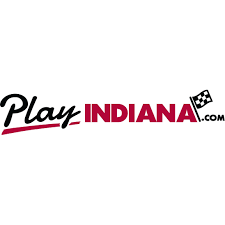
With a minimized schedule of sports to bet on and casinos closed for the entire month, Indiana generated just $26.3 million in wagers, according to official reporting released Monday. During a month in which online and retail sportsbooks would have expected to draw at least $190 million in bets, April’s handle was down 64.8% from $74.8 million in March. That’s the lowest monthly handle ever for Indiana sportsbooks, which launched in October 2019 with $35.2 million in bets.
“April’s results are shocking, but not at all surprising,” said Dustin Gouker, chief analyst for PlayIndiana.com. “Bettors have very few places to turn in Indiana. In some states, online casinos have driven significant revenue. But that isn’t possible in Indiana. So the industry’s results will continue to be grim until the sports world figures out a way to reopen.”
April’s wagers still produced $5.5 million in adjusted gross revenue, essentially even with March. That yielded $522,085 in tax revenue for the state.
Without legal online casino games and poker, and no esports betting, bettors in Indiana have largely been limited since mid-March to fringe international sports and futures betting. In fact, $21 million of the state’s handle was generated by “other” sports, far more than football, basketball, and baseball.
The NFL Draft, and to a lesser extent the WNBA Draft, gave bettors some reason to engage with sportsbooks in April. Indiana, the first state to allow betting on professional sports drafts, generated $1.3 million in football-related wagers in April, most of which came from the NFL Draft.
“The shut down of sports has led to some creativity by Indiana’s bookmakers, and that creativity was rewarded with interest in the NFL Draft,” said Jessica Welman, analyst for PlayIndiana.com. “Even though Indiana has missed out on some opportunities, regulators have at least been nimble enough to allow some unconventional ideas.”
There are reasons for cautious optimism. NASCAR is planning on revving up in May, which could draw betting interest. The PGA Tour is planning a June tee off while baseball and the NBA continue to search for a workable solution to restart their seasons. In addition, Indiana’s casinos and retail sportsbooks could open as early as June 14.
“It could be that April is the low point in what will undoubtedly still be a struggle until sports can resume with their regular schedules,” Gouker said. “If sports do resume relatively soon, online sportsbooks should recover quickly. In the meantime, sportsbooks will continue to look for creative ways to drive revenue.”
Because retail sportsbooks were shut down entirely in April-costing an estimated $40 million in in-person bets-online sportsbooks accounted for the entire handle in the state. DraftKings/Ameristar Casino led the market with $13.6 million in bets, up from $33.1 million in March. That generated $908,322 in gross receipts, down from $2.4 million. FanDuel/Blue Chip Casino was second with a $9.7 million handle, down from $21.6 million. That resulted in a $558,155 win, down from $1.5 million.
The market leaders were followed by:
- BetRivers/French Lick Resort ($2.1 million handle, down from $3.6 million; $116,726 win, down from $343,482)
- Hollywood Lawrenceburg/PointsBet ($449,638 handle, up from $334,237 handle; -$4,768 handle, down from $65,390)
- BetMGM/Belterra ($418,195 handle, down from $2.1 million; $48,043 handle, down from $370,669)
- BetAmerica/Rising Star Casino ($3,886 handle, down from $132,568; $3,519 win, down from $8,233)
The shutdown may have slowed the development of some sportsbooks apps, too. BetIndiana is still sorting through issues. And familiar brands such as William Hill, which operates a retail sportsbook at Tropicana Evansville, as well as Caesars, Fox Bet, and Unibet have yet to enter the market.
“The legacy of this shut down for the market could be in the way it has stunted its growth,” Welman said. “From lost revenue to less competition, the effects of this unprecedented shutdown will be felt well after sports resume.
